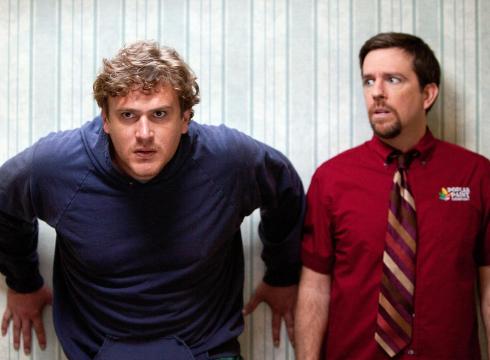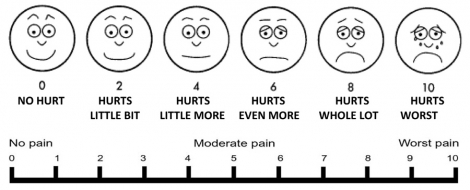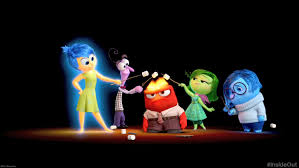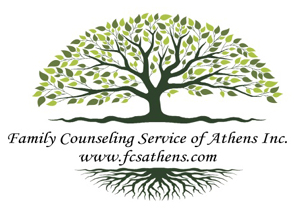Important Notice
If you are using our Northeast Georgia EAP program through your employer, you will click on the link below and complete the form. If you do not see your employer listed, please call our office @ 706-549-7755 for the correct link.
https://hipaa.jotform.com/FCSathens/NEGEAP
If you are looking to register for an Anger Management Class, a Family Violence Class, a Substance Abuse Evaluation, or a Clinical Evaluation, you would have to call our office at (706) 549-7755 in order to get the correct forms sent to you.
We do not perform Mental Health Evaluations, and we are not traditional Medicaid or Medicare providers. If you have any other questions or concerns you can always give our office a call and we'd be more than happy to help you!
Cinematherapy (TM)
"Cinema is a medium that can translate ideas." --David Lynch
Dr. Gary Solomon was the first person/psychotherapist to create and publish books on Cinematherapy™ (trademarked) and Cinema Therapy with his clients/patients back in the early 1990's. Since then his innovative and groundbreaking therapeutic treatment has been used worldwide. Dr. Solomon has written three books on the subject of Cinematherapy™ and will be releasing his fourth book on the subject this Spring 2019.
If you have ever found yourself moved to tears or laughter at a movie or been compelled to discuss a film with a friend, you have experienced the power of cinema to engage emotions and thought. Many people have had cathartic experiences when watching a movie which parallels their own life in some way. That is one therapeutic use of cinema.
You could also approach a film therapeutically by watching it with particular questions in mind, and attention to any emotional responses in order to discuss them in therapy. In this “cinematherapy” section of Help Yourself we offer staff suggestions for films with related themes and/or questions for exploration.
The Savages is a 2007 American film, starring Phillip Seymour Hoffman and Laura Linney and premiered at the Sundance Film Festival: recommended by Teddy Kemp
I first saw this movie when we were struggling with guilt over placing an aging parent in a nursing home. The movie does a great job of surfacing the guilt common in this situation and helps facilitate a conversation about how guilt can drive these important family decisions.
Take This Waltz (2011) – Directed by Sarah Polley: recommended by Rebecca Coates Keane
http://www.imdb.com/title/tt1592281/?ref_=nv_sr_1
Take This Waltz documents the emotional landscape of marriage, including both the internal and external influences that inform our most intimate decisions. This film normalized many of the unspoken struggles I faced during a time of great transition in my life. Through humor and an amazing soundtrack (yes, the title is tipping a hat to Leonard Cohen), Sarah Polley offers viewers a snapshot of the intricacies of relationships and how getting unstuck requires more than just a change of surroundings.
Jeff Who Lives at Home - recommended by Michelle Castleberry
https://www.youtube.com/watch?v=34kCWAsddtA
In addition to being an very well-crafted indie film, "Jeff Who Lives At Home" is a charming, authentic look at family dynamics around a "boomerang" adult living at home, sibling dynamics, and mid-life relationship complications. It tackles all of these with humor and humanity.
Parenthood - recommended by Amy Heesacker
Series, Available on Netflix.com
Parenthood is a comedic television drama series that follows the lives of two parents (Craig T. Nelson and Bonnie Bedilia), their four adult children, and their grandchildren of various ages. The story lines vary from week to week, but touch on issues that will be familiar to many, including: dating, marriage and long-term relationships, divorce, infidelity, recovery from alcoholism, raising a child with Autism/Asperger’s, raising teenagers, autonomy / individuation, infertility, adoption, diversity, and much more. The show normalizes the challenges of growing up in a family and models healthy resolutions to difficult problems.
Big Hero Six (2014) - Recommended by Michelle Castleberry
Can a robot be instructive on grief and empathy? If the robot is the inflatable, peaceful Baymax, it can. The main character of this animated Disney film is young Hiro, who is thrust into the grief of the loss of his older brother Tadashi. Tadashi's pet robotics project was a "personal healthcare assistant" made of high tech scanning and medical technology covered in a non-threatening puffy white exterior. In true animated adventure manner, Hiro, Baymax and his crew of flawed but well-meaning friends quickly find a villain, a mystery, and a challenge that pushes all of them to the limits of their newly discovered powers. I was personally drawn to the story of the therapeutic relationship between Baymax and Hiro. Baymax's interventions are, by his nature, linear and applied mechanically according to his sensor's reading of Hiro. As the story evolves, so does Baymax's helping and Hiro's receptiveness of help from the robot and his friends. For folks of a wide range in age dealing with grief, loss and the bravery it takes to both give and receive help, Baymax will leave you "satisfied with your care."

Inside Out (2015) - Recommended by Amy Heesacker, Ph.D.
I loved Inside Out, a Pixar film animated for the whole family, both as a parent and as a psychologist. The film tells the story of a recently uprooted eleven-year-old girl experiencing the range of emotions from excitement to fear to anger as she adjusts to her new situation. But what really makes this movie unique is the care it takes in demonstrating the importance of emotions to our lives: All emotions, even the negative ones, are shown to serve a purpose in helping us to successfully navigate and grow in the world around us. We get to see the inner workings of Riley’s brain as Joy, Sadness, Fear, Disgust and Anger, work together to help her safely develop. The film shows how a family is able to work together to overcome a difficult situation when the youngest member safely expresses emotions and is understood with compassion. Other themes the movie explores include: imaginary friends (Bing-Bong), memory storage and retrieval, the subconscious mind, onset of puberty and personality development. With creative innovation the director, Pete Docter, presents these well-researched complex concepts in a manner that children (and their parents!) can comprehend. I’ve already recommended this movie to families to help them understand and discuss their emotions, and I’m finding ways to incorporate the characters into play therapy with young children. But aside from the educational components, the movie is fun, tender and engaging.

"Back from the Edge" (2012) - Recommended by Michelle Castleberry
This documentary could be very encouraging and enlightening for those effected by Borderline Personality Disorder. Whether you are newly diagnosed, or are a family member or friend of someone with the condition, this documentary produced by New York Presbyterian Hospital offers comprehensive stories about the experience of BPD. Clinicians will appreciate the cameos by experts including Marsha Linehan. While BPD has no "cure" per se, with treatment that includes skills to manage painful emotions, there is hope for healthier life and relationships.
| 







